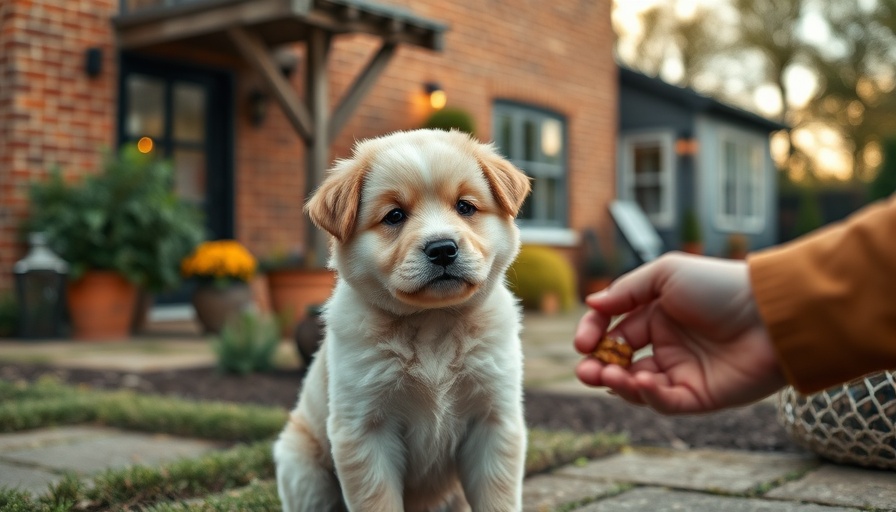
Why Train Large Breed Puppies Early?
Training large breed puppies is an important aspect of dog ownership, especially considering their rapid growth and potential size. Understanding this early development stage is crucial. As highlighted in a recent survey by the Association of Professional Dog Trainers, those who engage their puppies with training in the first few weeks drastically reduce the chances of behavioral problems in later life. It's not just about teaching commands; it's about establishing a lifelong communication language between you and your pup.
Building a Strong Foundation: The Importance of Consistency
Consistency is the heartbeat of effective training. For large breed puppies, the stakes are even higher. As these dogs grow, differing commands or rules can lead to confusion and frustration for both the owner and the dog. A 2023 study in the Journal of Veterinary Behavior emphasizes this point, showing that inconsistency leads to anxiety-induced behaviors, such as excessive barking or destructive tendencies. Ensuring that everyone in the household agrees on training methods is vital for success.
Positive Reinforcement: Key to a Joyful Training Experience
Utilizing positive reinforcement helps cement the bond between you and your puppy. By rewarding good behaviors with treats or praise, you encourage them to repeat these actions in the future. Dr. Emily Blackwell’s insights into early training stress that these positive experiences during a puppy’s formative months significantly influence their ensuing behavior. Providing an engaging, fun, and rewarding training environment ensures that your puppy not only learns but enjoys the process.
The Role of Socialization in Puppy Training
Socialization is equally important when training large breed puppies. Exposing your puppy to different environments, people, and other animals will build their confidence and help alleviate fears that can lead to aggressive behaviors later on. Arrange playdates with other dogs, visit local parks, or attend puppy training classes to provide diverse opportunities for socialization.
Setting Up a Safe and Enriching Space
Setting up a conducive home environment is crucial for training success. Ensure your puppy has a designated area that is safe from hazards, allowing them to explore and play without risk. Incorporate stimulating toys that challenge their minds, keeping boredom at bay and reinforcing positive behaviors through distractions. A well-structured environment not only enhances training sessions but fosters overall well-being.
Understanding the Unique Needs of Large Breeds
Large breeds tend to develop joint issues or other health concerns if proper exercise and nutrition guidelines are not followed. Staying informed about the specific health risks your dog may face is crucial in shaping their training routine. Regular veterinary check-ups and a balanced diet contribute to their training outcomes and overall vitality.
Frequently Overlooked Training Techniques
One common misconception is that large breeds are less susceptible to behavioral issues simply due to their size. In fact, they require as much training and effort from their owners as smaller breeds. Inconsistent training or lack of positive engagement can lead to intense behavior problems. Implementing time-outs for negative behaviors can be effective, teaching your puppy that certain actions have consequences.
Looking Ahead: The Benefits of Puppy Training
Investing time and energy into training large breed puppies pays off in the long run. Well-trained dogs are often happier, more socialized, and easier to manage. A strong foundation in their formative years leads to a fulfilling partnership that enriches both your life and theirs.
Why Consider Professional Support?
If you find difficulties in training your large breed puppy, seeking the help of a professional can be beneficial. Experienced trainers offer tailored programs that cater specifically to your dog’s unique needs. This guidance can ensure that you are following the best practices, leading to a positive experience for both you and your pup.
Final Thoughts on Training Your Large Breed Puppy
The journey of raising a large breed puppy is filled with challenges but is incredibly rewarding. By adopting early training techniques, keeping consistency, using positive reinforcement, and providing proper socialization and care, you can shape a happy, well-adjusted dog. Don't hesitate to ask for help and engage with your community, as shared experiences often lead to the best insights.
 Add Row
Add Row  Add
Add 


Write A Comment